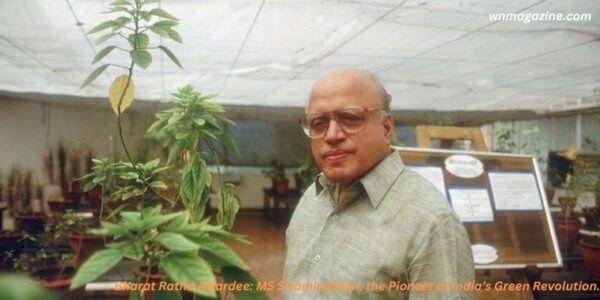PM Modi announced on Friday that the esteemed agricultural scientist, Mankombu Sambasivan Swaminathan, often hailed as the founder of the Green Revolution in India, will be posthumously honored with the Bharat Ratna. Sharing a picture of himself with MS Swaminathan on a social media platform (referred to as “X”), PM Modi expressed his close association with the late scientist, highlighting his values and significant contributions.
Also Read: well health tips in hindi wellhealth
In recognition of Dr. MS Swaminathan’s exceptional role in transforming Indian agriculture and ensuring self-sufficiency during challenging periods, the Indian government is delighted to confer the Bharat Ratna upon him. PM Modi commended Dr. Swaminathan’s role as a mentor, innovator, and motivator in the field of agriculture, fostering learning and research among numerous students. The Prime Minister emphasized Dr. Swaminathan’s inspirational leadership, asserting that it not only revolutionized Indian agriculture but also secured the nation’s prosperity and food security.
MS Swaminathan: Who was he?
MS Swaminathan, born on August 7, 1925, held diverse roles as an administrator, plant geneticist, agronomist, and agriculture scientist. Widely acknowledged as the father of the Green Revolution in India, Swaminathan initiated groundbreaking research on the genetic makeup of crops such as potatoes, wheat, rice, and jute in 1949. His pivotal contributions include the development of high-yielding paddy varieties, significantly enhancing yields for India’s low-income farmers.
Recognized as the father of economic ecology by the United Nations Environment Programme, Swaminathan collaborated with agriculture ministers like C. Subramaniam and Jagjivan Ram in the 1960s and 1970s to successfully implement the Green Revolution. This initiative played a crucial role in boosting wheat and rice productivity through the application of chemical-biological technology.
In addition to his research, Swaminathan held key administrative positions in various agricultural research institutions, including the International Rice Research Institute and the Indian Council of Agricultural Research. He served as the principal secretary in the Ministry of Agriculture in 1979 and later presided over the International Union for the Preservation of Nature and Natural Assets. Notably, he chaired the National Commission on Farmers in 2004.
MS Swaminathan, who received accolades such as the Albert Einstein World Science Prize in 1986 and the Ramon Magsaysay Award in 1971, established the MS Swaminathan Research Foundation in Chennai after being honored with the inaugural World Food Prize in 1987. He was actively involved in various international agriculture and environmental projects and was listed by Time magazine as one of the 20 most significant Asians of the 20th century.
Sadly, MS Swaminathan passed away at the age of 98 in September of the previous year. Survived by his three daughters (his wife, Mina, having passed away in 2022), his legacy continues through his pioneering contributions to Indian agriculture and his enduring impact on global food security initiatives.
Also Read: wellhealthorganic vitamin b12
